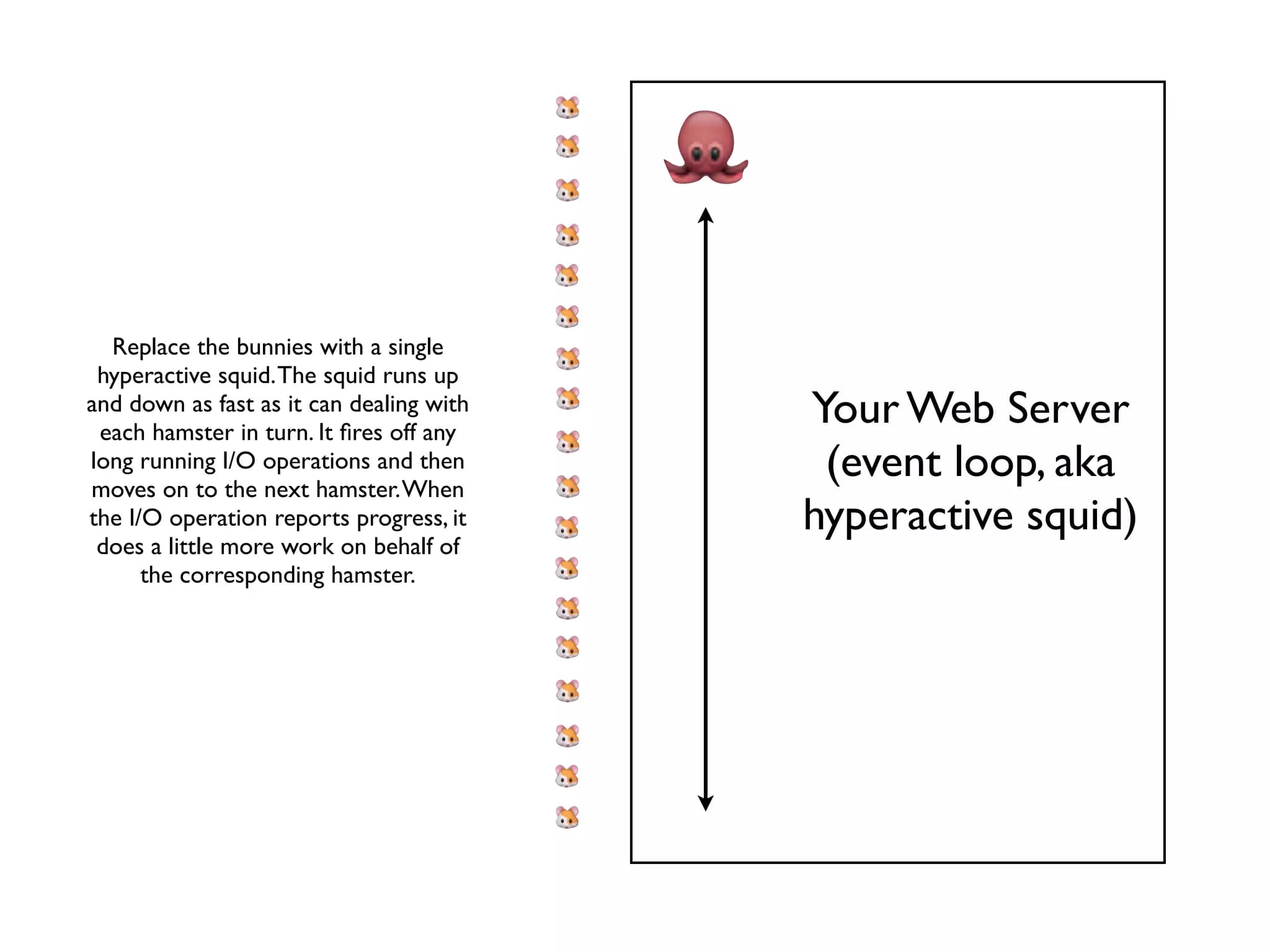10 posts tagged “tornado”
2013
How do I choose between asynchronous web frameworks? My tech group is fairly language agnostic and we’re trying to standardize on some technologies.
Since they are all pretty close to each other and it sounds like your tech group’s skills would support any of them, I would suggest having your tram build a simple prototype in all three so you can compare them for your own particular team and situation.
[... 76 words]2012
What server do I need to handle 1000+ users simultaneously while they can post messages, upload pictures, and other similar stuff on a website based on PHP and mySQL?
You don’t need to handle 1,000 users simultaneously: you need to build something and ship it and start the process of discovering what you can build that will attract that many users. Seriously: don’t even start worrying about that kind of scale until you know you’re going to need it.
[... 138 words]2011
We can deploy new versions of our software, make database schema changes, or even rotate our primary database server, all without failing to respond to a single request. We can accomplish this because we gave ourselves the ability suspend our traffic, which gives us a window of a few seconds to make some changes before letting the requests through. To make this happen, we built a custom HTTP server and application dispatching infrastructure around Python’s Tornado and Redis.
— Dan Manges, Braintree
2010
What is the history of Django? I’ve been playing with Quora—it’s a really neat twist on the question-and-answer format, which makes great use of friends, followers and topics and has some very neat live update stuff going on (using Comet on top of Tornado). I just posted quite a long answer to a question about the history of Django.
Integrate Tornado in Django. A handy ./manage.py runtornado management command for firing up a Tornado server that serves your Django application.
2009
Web Sockets in Tornado. Bret Taylor has a simple class making it trivial to experiment with the Web Sockets protocol (now shipping in Chrome) using the scalable Tornado application server. He also raises the million dollar question: what will existing load balancers and proxies make of the new protocol?
Socket Benchmark of Asynchronous Servers in Python. A comparison of eight different asynchronous networking frameworks in Python. Tornado comes out on top in most of the benchmarks, but the post is most interesting for the direct comparison of simple code examples for each of the frameworks.
Node.js is genuinely exciting
I gave a talk on Friday at Full Frontal, a new one day JavaScript conference in my home town of Brighton. I ended up throwing away my intended topic (JSONP, APIs and cross-domain security) three days before the event in favour of a technology which first crossed my radar less than two weeks ago.
[... 2,025 words]We experimented with different async DB approaches, but settled on synchronous at FriendFeed because generally if our DB queries were backlogging our requests, our backends couldn't scale to the load anyway. Things that were slow enough were abstracted to separate backend services which we fetched asynchronously via the async HTTP module.
Tornado Web Server (via) An extremely exciting addition to the Python web landscape, Tornado is the open sourced version of FriendFeed’s custom web stack. It’s a non-blocking (epoll) Python web server designed for handling thousands of simultaneous connections, perfect for building Comet applications. The web framework is cosmetically similar to web.py or App Engine’s webapp but has decorators for writing asynchronous request handlers. The template language uses Django-style syntax but allows you to use full Python expressions. FriendFeed have benchmarked it handling 8,000 requests a second running as four load-balanced processes on a 4 core server.
